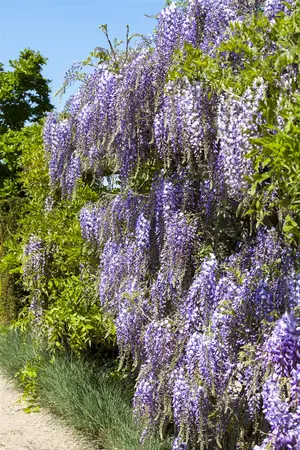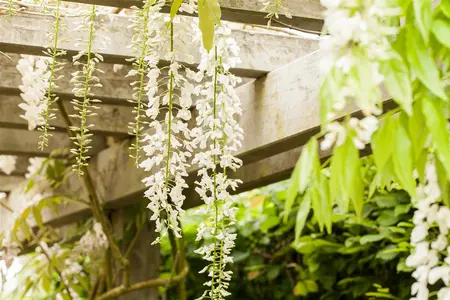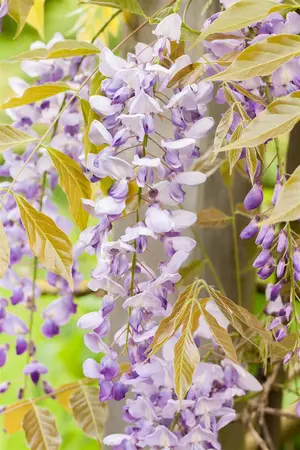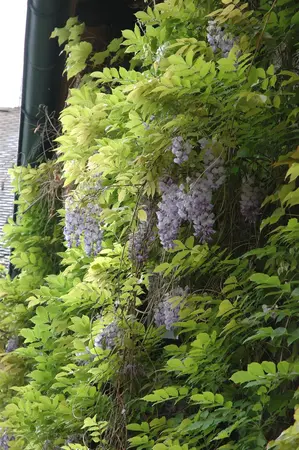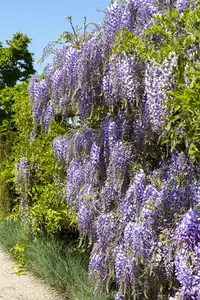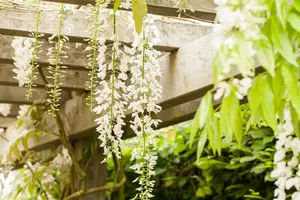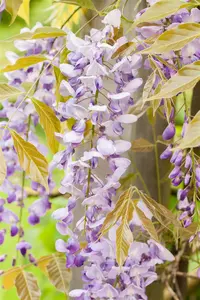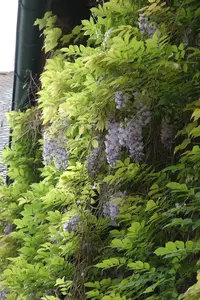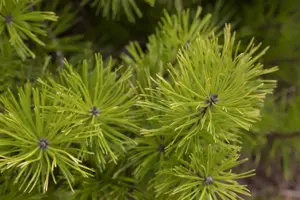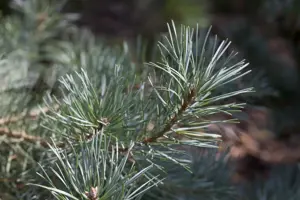Wisteria floribunda - 80-100 CM C2
Wisteria floribunda - 80-100 CM C2
Description
The Japanese wisteria (Wisteria floribunda) is a climbing, branching deciduous plant that produces purple flowers arranged in clusters with a pleasant fragrance. They appear from May to June. These produce green, pod-shaped fruits. They exude a pleasant fragrance. The Japanese wisteria also has pinnate, medium green leaves. In a sunny to semi-shady, wind-protected location with well-drained, sandy, acidic, loamy, weakly acidic soil, it usually reaches a height of around 8 metres and is around 6 metres wide.
Synonym
Synonyms (botanical): Glycine floribunda.
Bulletpoints
* fragrant flowers
* attractive yellow autumn colouring
* heat-tolerant, resistant to urban climates, thermophilic, sensitive to late frost, deer-resistant
leaves
The deciduous leaves of the Japanese wisteria are medium green, pinnate, alternate. Japanese wisteria turns bright yellow in autumn.
Spread
Japan.
Frost hardiness
The Japanese wisteria has good frost hardiness.
Growth
Japanese wisteria is a twining, branching climber that can reach a height of 6 - 8 m and a width of 4 - 6 m.
Water
Water regularly and allow the soil to dry out in the meantime.
Location
Preferred location in a sunny to semi-shady, wind-protected position.
Soil
Wisteria floribunda thrives on all acidic, humus-rich and sufficiently moist soils.
Planting time
Container plants can be planted all year round, except when the soil is frozen and in summer heat (over 30°C).
Care
In general, stable wooden structures can be recommended as climbing aids on house walls and façades. However, there are plants that prefer slightly twisted, parallel wire ropes as climbing aids.
Flower
The purple flowers of Japanese wisteria appear in clusters from May to June. They are pleasantly fragrant.
Worth knowing
Plant or parts of the plant are poisonous.
Use
Facade
Root
Spreading branches.
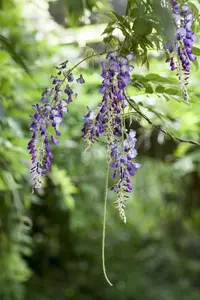
- Article number487
-
EAN codeWIFLORIB-2080100C2
- Latin nameWisteria floribunda
- catalogLandscape shop


